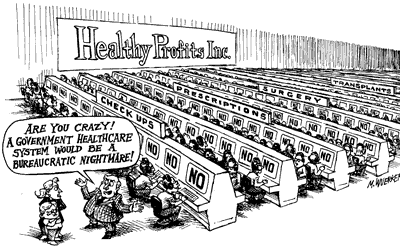
Posted by: Dan Hughes
Article by: Megan Johnson
Health insurance, if you're young, cash strapped, and healthy, may seem expensive and pointless. It's not. An ankle-twisting fall on a hiking trail, a broken arm in a friendly soccer game, bronchitis that turns into pneumonia—you're potentially talking thousands of dollars in medical expenses. See which of the following eight categories describes you, and check out the experts' recommendations. Our health insurance glossary will help with unfamiliar terms.
You're moving from high school into the workforce.
If your parents are covered through an employer, try to stay on their plan, says Kathleen Stoll, director of health policy at Families USA, a healthcare consumer advocacy group. It'll cost less than getting individual health insurance on your own because most employers pay a large part of the premium of a group plan. More than half the states require insurers to extend parental coverage to adult children below a certain age, typically 25 but as high as 30 in New Jersey. Your state insurance department or the National Conference of State Legislatures can fill you in.
Click here to read more.










